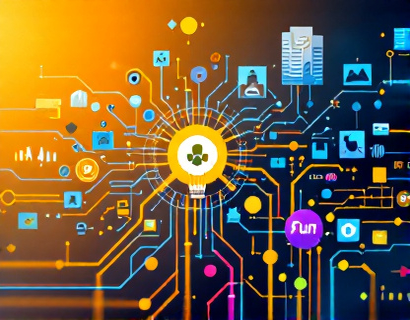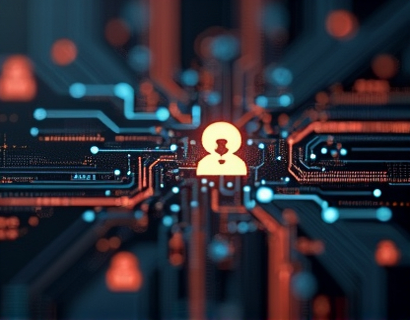Transforming Education with AI-Powered Chatbots: A Comprehensive Guide for Students, Families, and Educators
The integration of artificial intelligence in educational settings has opened new avenues for learning, making knowledge more accessible and personalized than ever before. Among these innovations, AI-powered educational chatbots stand out as a transformative tool, offering specialized insights tailored to the needs of students, families, and educators. This article delves into the capabilities and benefits of these chatbots, focusing on how they deliver industry-specific knowledge and services through verified content, ensuring a safe and enriching educational experience for all users.
Understanding AI-Powered Educational Chatbots
AI-powered educational chatbots are sophisticated software applications designed to simulate conversation through natural language processing and machine learning algorithms. These chatbots are programmed to understand and respond to user queries with relevant and accurate information, adapting to the user's level of understanding and learning pace. Unlike traditional Q&A systems, these chatbots can engage in multi-turn conversations, providing step-by-step explanations and detailed insights.
Specialized Insights for Students
For students, AI chatbots serve as personalized tutors, offering support in various subjects and topics. These chatbots can provide explanations of complex concepts, solve problems, and offer study tips tailored to the student's specific needs. The content is curated from verified sources, ensuring accuracy and reliability. For instance, a student struggling with advanced mathematics can interact with the chatbot to get detailed solutions to practice problems, along with explanations of the underlying principles.
Moreover, these chatbots can adapt to the student's learning style, presenting information in formats that suit individual preferences, whether it's through text, images, or interactive simulations. This adaptability not only enhances understanding but also boosts engagement and motivation.
Support for Families
Families play a crucial role in a student's educational journey, and AI chatbots can be invaluable resources for parents and guardians. These chatbots can provide insights into educational standards, help with homework, and offer guidance on how to support their child's learning at home. For example, a parent seeking advice on fostering a love for reading in their child can receive tailored recommendations and activities from the chatbot, along with research-backed strategies.
Additionally, chatbots can assist families in navigating the educational system, from understanding curriculum requirements to finding resources for special educational needs. This support helps bridge the gap between home and school, creating a more cohesive and supportive learning environment.
Resources for Educators
Educators can leverage AI chatbots to enhance their teaching methods and stay updated on the latest educational trends and technologies. These chatbots can offer lesson plan ideas, classroom management tips, and insights into effective teaching strategies based on current research. For instance, a teacher looking for innovative ways to teach history can receive suggestions for interactive activities and multimedia resources that engage students and deepen their understanding of the subject.
Furthermore, chatbots can facilitate professional development by connecting educators with relevant courses, webinars, and networking opportunities. This continuous learning helps educators refine their skills and stay at the forefront of educational innovation.
Ensuring Content Verification and Safety
A critical aspect of AI-powered educational chatbots is the commitment to content verification. These platforms employ rigorous processes to ensure that the information provided is accurate, up-to-date, and sourced from credible references. This verification process involves cross-referencing data from multiple reputable sources and regularly updating the content to reflect the latest developments in various fields.
For educational institutions and families concerned about the safety and appropriateness of the content, these chatbots offer child-friendly versions that filter out inappropriate language and topics. The chatbots are designed to interact in a manner that is both educational and safe for children, adhering to strict guidelines to protect young users.
Enhancing Learning Through Interactive Engagement
One of the most compelling features of AI chatbots in education is their ability to engage users in interactive learning experiences. Through conversational interfaces, students can explore topics in a dynamic and interactive way, asking questions and receiving immediate feedback. This interactivity not only makes learning more enjoyable but also reinforces understanding through active participation.
For example, a student learning about the solar system can ask the chatbot about the characteristics of each planet, and the chatbot can provide detailed information, accompanied by images and fun facts. This hands-on approach helps solidify knowledge and encourages curiosity.
Personalized Learning Paths
AI chatbots can analyze a user's performance and learning preferences to create personalized learning paths. By tracking progress and identifying areas of strength and weakness, the chatbot can recommend specific resources and exercises tailored to the individual's needs. This personalized approach ensures that each student receives the support they need to succeed, regardless of their starting point.
For instance, a student who excels in science but struggles with language arts can receive additional reading comprehension exercises and vocabulary building activities, while continuing to engage with science content at an appropriate level of challenge.
Collaboration and Community Building
AI chatbots can also foster a sense of community among students, families, and educators. By facilitating discussions and collaborative projects, these chatbots help build a network of learners who can support and inspire each other. For example, students working on a group project can use the chatbot to coordinate tasks, share resources, and provide feedback, all within a structured and monitored environment.
Educators can leverage the chatbot to create online forums and discussion groups, where they can share best practices and collaborate on curriculum development. This collaborative approach enhances the overall educational experience and promotes a culture of continuous improvement.
Overcoming Challenges and Limitations
While AI-powered educational chatbots offer numerous benefits, it is essential to acknowledge and address potential challenges. One key consideration is the need for continuous improvement in natural language understanding and generation. As language is complex and context-dependent, chatbots must be constantly updated to handle a wide range of queries accurately.
Another challenge is ensuring that the chatbot's responses are culturally sensitive and inclusive. Developers must strive to create content that resonates with diverse student populations, avoiding biases and stereotypes. Regular feedback from users and ongoing refinement of the chatbot's algorithms are crucial in addressing these issues.
Future Prospects and Innovations
The future of AI-powered educational chatbots holds exciting possibilities. Advances in machine learning and natural language processing will likely lead to even more sophisticated and intuitive chatbots capable of deeper understanding and more nuanced interactions. Integration with other educational technologies, such as virtual reality and augmented reality, could create immersive learning environments that further enhance the educational experience.
Moreover, the expansion of AI chatbots into new educational domains, such as vocational training and lifelong learning, will continue to broaden their impact. As these technologies evolve, they will play an increasingly vital role in shaping the future of education, making high-quality learning accessible to a global audience.
Conclusion
AI-powered educational chatbots represent a significant leap forward in personalized and interactive learning. By providing specialized insights, verified content, and a safe learning environment, these chatbots empower students, support families, and enhance the capabilities of educators. As the technology continues to advance, the potential for transforming education through AI chatbots is immense, promising a future where learning is more engaging, effective, and inclusive for all.











































